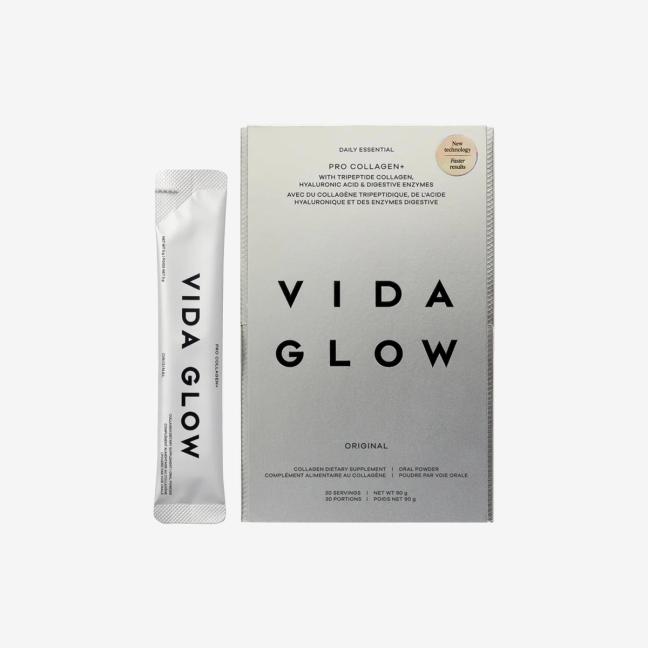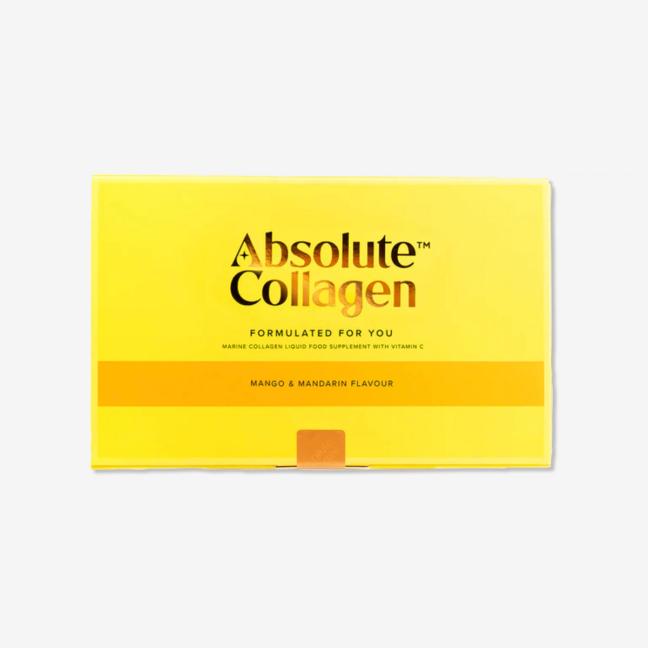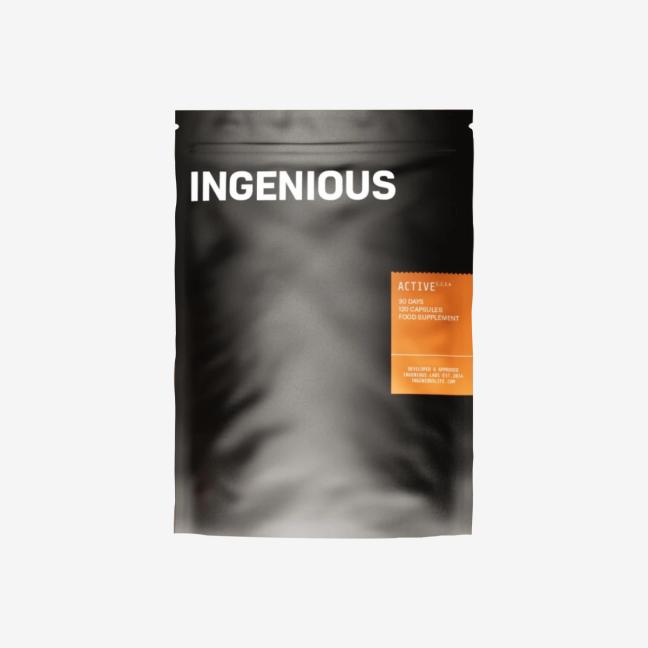Why should you be taking collagen?
As you get older you're told to up your collagen intake, but is it actually worthwhile?
Collagen is one of those terms, like protein and vitamin D, that is thrown around a lot. A naturally occurring protein in our bodies, it is one of the building blocks of healthy skin, hair, nails and bones, we're told that collagen is the key to looking youthful for longer, and that is why there has been an influx of new products, such as supplements, powders and collagen-boosted serums, on the market.
But is it actually any good for you and if it is, who should be taking it? Are there any risks to having collagen and who should avoid using it? We sat down with Dr. Adam Nusenbaum, the Aesthetic Doctor at London-based clinic and brand Dr David Jack, to find out whether we all ought to be ingesting collagen on the daily.
What is Collagen?
Collagen is the main structural protein that is used as a building block in many tissues in our body. It is found in our bones, skin, hair, muscles and joints, however we mainly associate it with our skin and it’s collagen that’s responsible for giving our skin that smooth and youthful appearance.
Why should you take it?
After the age of about 25 we start to lose collagen at a rate of about 1 per cent a year. This loss of collagen has been strongly linked to the ageing process, leading to loss of skin texture and vibrancy and the development of fine lines and wrinkles. Boosting collagen production can delay and in some cases reverse those signs of ageing.
How do you take it?
Oral collagen supplements can usually found in either tablet, capsule or a powder form that can be easily mixed into a shake. It’s important to remember this is not a protein substitute, but should be added to a healthy and well-balanced diet.
Who should take it?
If you are noticing the signs and symptoms of skin ageing or simply wanting to stay ahead of the curve when it comes to collagen loss, known as collagen banking, certain oral collagen supplements may be a good addition into your daily routine.
Who should avoid it?
Current medical evidence only highlights the effectiveness of hydrolysed collagen supplements that are from animal sources, this usually being either bovine or marine derived. So it's important to check the ingredients in case of allergies, but this may also be restrictive for some, depending on their dietary restrictions.
What are the Benefits?
There is still some debate within the medical community as to how effective oral supplements are at boosting collagen production. However, there is some recent good quality evidence to show that taking specifically animal derived hydrolysed collagen supplements, can be effective in reducing wrinkles and improving skin elasticity and hydration, but wider health benefits have yet to be confirmed. Unfortunately, as of yet, we don’t have any studies on the effectiveness of vegan collagen supplements, but that’s not to say we won’t in the future.
The Risks?
Oral collagen is generally incredibly well tolerated, the most commonly occurring side effect is GI related issues, such as stomach pain and diarrhoea. So if you do have a sensitive stomach, I would suggest to starting small and work your way up to the recommended amount.
Below are some of the best collagen supplements you can take invest in right now...

Vida Glow Pro Collagen+, £55. vidaglow.com

Absolute Collagen Marine Collagen Supplement for Men, £33.99. absolutecollagen.com

Ingenious ACTIVE collagen, £51 for 30 days. ingeniouslife.com
Want more of the best gear money can buy? Check out our previous Editors' Picks…
Become a Gentleman’s Journal member. Find out more here.

Become a Gentleman’s Journal Member?
Like the Gentleman’s Journal? Why not join the Clubhouse, a special kind of private club where members receive offers and experiences from hand-picked, premium brands. You will also receive invites to exclusive events, the quarterly print magazine delivered directly to your door and your own membership card.


